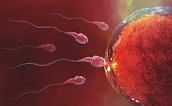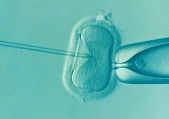Can Necrospermia Patients Take IVF Successfully?
Date:2019-10-15 click:0
Nowadays, more and more couples come to the hospital every year because of infertility. Generally speaking, most infertile patients can find out the cause of infertility and precise treatment, which can make their dreams of becoming parents come true. Of course, with the continuous progress of medical technology, artificially assisted reproduction has also fulfilled many couples' dreams of becoming parents. So can the patients with necrospermia have test-tube babies?

Necrospermia refers to the reduction of sperm survival rate, or the dead sperm accounts for more than 40% in all of the sperms, the disease is one of the reasons for male infertility. It does not mean that sperm is dead, but can not move. Patients with necrospermia have the following characteristics: their sperm morphology and density are basically normal, but through further testing, it will be found that most of the sperm of these patients have died. Such sperm means that the fertility of men is greatly reduced, but if you want a baby of your own, you can also take IVF.
Usually, the second generation of IVF treatment (ICSI intracytoplasmic sperm injection) is used for necrospermia patients. As long as there are healthy sperm in the semen, even if the number of sperm is very small, the success rate of the second generation IVF technology is very high, and it will not be lower than other IVF patients.
If the motile sperm density in male semen is higher (the reference standard is motile sperm density of more than 10,000), one generation of IVF can be considered to assist pregnancy. For patients with sperm of low density and low survival rate, the fertilization probability of the first generation of IVF is lower, and the second generation of IVF is greater. The second-generation IVF technology is mainly aimed at severe male oligoasthenospermia, necrospermia, and obstructive azoospermia, and these patients can have children of their own.

After the semen was taken out, a healthy sperm was selected by microscopy and injected into the cytoplasm of the egg. The sperm and the egg were combined to form a fertilized egg when the fertilized egg developed into an embryo, and then it will be transferred to the uterus.
Although the success rate of test-tube infants in patients with necrospermia is very high, if not treated in time, it may also cause serious consequences. The key point in the treatment of diseases is to find out the pathogenic factors. Only the pathogenic factors are identified, and targeted treatment can fundamentally solve the problem. How long can necrospermia be cured depends on the condition, etiology, patient's physique, and other factors; it can not be generalized.
For example, patients with necrospermia caused by genital inflammation such as prostatitis and orchitis should be aim at diminishing inflammation. The problem will be solved by taking herbal medicine Diuretic and Anti-inflammatory Pill and it will not cause any side effects. Malnourished men should actively supplement nutrition, and low spermatogenic function caused by some other reasons, oral or subcutaneous implantation of drugs may be needed to promote spermatogenic function. For cryptorchidism and varicocele patients, surgery is needed.

In addition, patients in the course of treatment should pay attention to their diet, work, and rest. It is suggested that more zinc-rich foods should be consumed in the diet because zinc contains nutrients that can promote spermatogenesis and improve the survival rate of sperm, which can play an auxiliary role in improvement.



